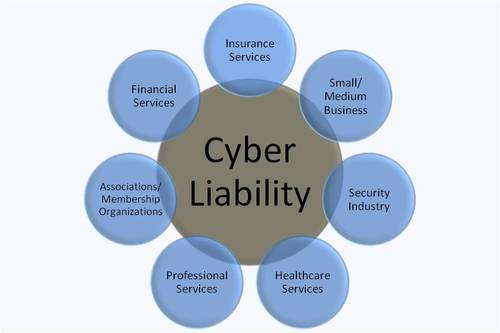What is Cyber Insurance?

What exactly is cyber insurance? In its simplest form, cyber-insurance protects companies and people providing online services from Internet-related legal liability. As the world grows increasingly web-oriented, businesses and consumers alike turn to the Internet for information and services. Unfortunately, this also often results in not legitimate business clients having access to company or individual files. As a result, Cyber-intimidation is possible when these clients are allowed to view company information or personal data. In addition, they can use software tools to obtain personally identifying information.
There are several kinds of cyber-intimidation. Some are more malicious than others. A few include hacking into a company server or computer or leaking information or service secrets that damage the interests of the company or the consumer. Others include issuing unauthorized transactions or activities through a Web site or distributing viruses, spyware, or other potentially harmful applications. A general liability insurance policy would typically cover these activities, whether or not the user or party was engaging in illicit activities.
In response to the increased awareness of identity theft, there has been an increase in the number of claims filed with insurers. Insurers have noticed that cybersecurity claims often involve a great deal of time and resources in tracking down the source of the claims. As a result, some insurers have begun to add cyber insurance claims to their general liability coverage. For example, one large insurance company, reviewing approximately $30 billion in claims filed annually, now covers cybersecurity claims. Smaller insurers do not offer this type of coverage.
One type of insurance that is frequently offered is credit monitoring and fraud protection. Small businesses and merchants need to understand that cybersecurity coverages may not be available to them through their existing credit card or banking policies. If a business purchases its credit cards or obtains its banking accounts through these sources, however, it may want to consider adding these policies to its policy. Many insurers offer a variety of options that include prevention of unauthorized use of information, detection of unauthorized transactions, and reduction in the risk of payment fraud, all of which can protect against a great deal of loss. Cyber insurance policies are also usually offered for those who engage in online transactions or conduct personal or business online.
A liability policy cover may include property damage or bodily injury liability. Property damage liability is designed to cover the cost of repair to the physical structure of a customer’s property damaged by a product or service purchased or obtained through the Internet. Bodily injury liability protects customers against bodily harm or property damage sustained while using the Internet. In order to determine the level of protection to purchase, it is necessary to assess the level of risk to the company.
Other types of possible claims that could be covered by insurance include computer virus damage or an unauthorized intrusion, defamation or libel, as well as false advertising. In order for an insurance policy to cover these types of claims, the company must prove that they have a reasonable basis for believing that the policyholder is at risk and that the threat was real. Computer virus and malware liability cover the cost of protecting a company from any damage caused by viruses, Trojans, worms, spoofing, tampering, and malware that attack the company or network computers. False advertising claims are based on laws that protect advertising on the Internet. These laws are designed to warn customers that content posted on the Internet may not be true.
Liability insurance that includes protection from cloud attacks claims is created through an agreement between the insurance provider and the cloud service provider. Unfortunately, these incidents are often hard to prove because of the remote nature of the attacks. Because of this, cloud service providers may attempt to mitigate their risk by paying a percentage of any damages or liabilities that occur. This percentage is often a low one but is still worth paying in order to avoid the costs of defending a lawsuit against an offsite user.
The Internet can cause many problems for businesses. For example, many companies have been put on alert after someone has hacked into their network, taken data, gained access to applications, and caused a loss of money or employment. High-cost incidents such as these can put a company at risk for a massive amount of money. To avoid these expenses, many employers offer Office 365 insurance. This type of insurance protects your business against the unexpected and usually requires no prior notice or approval.



